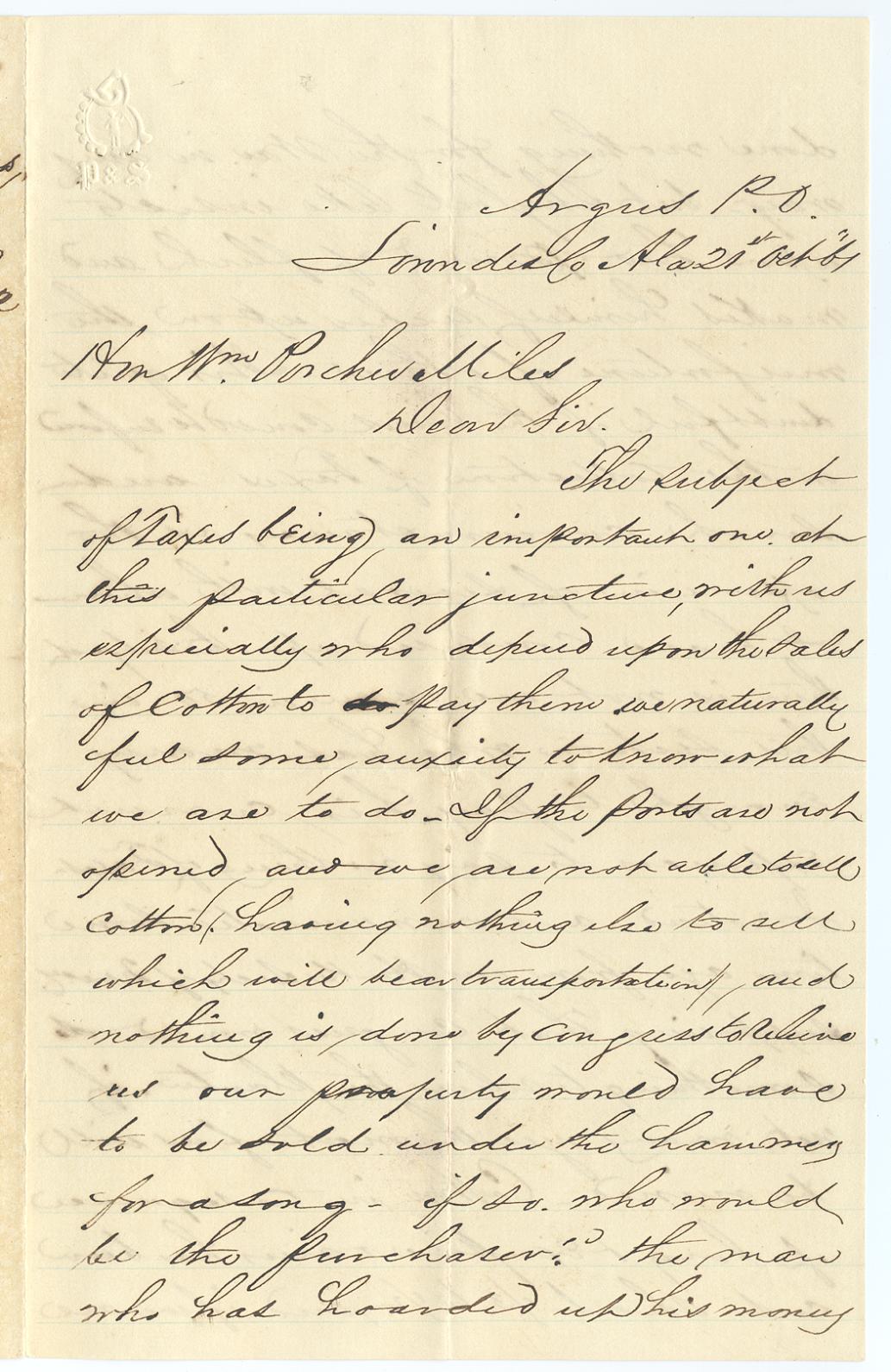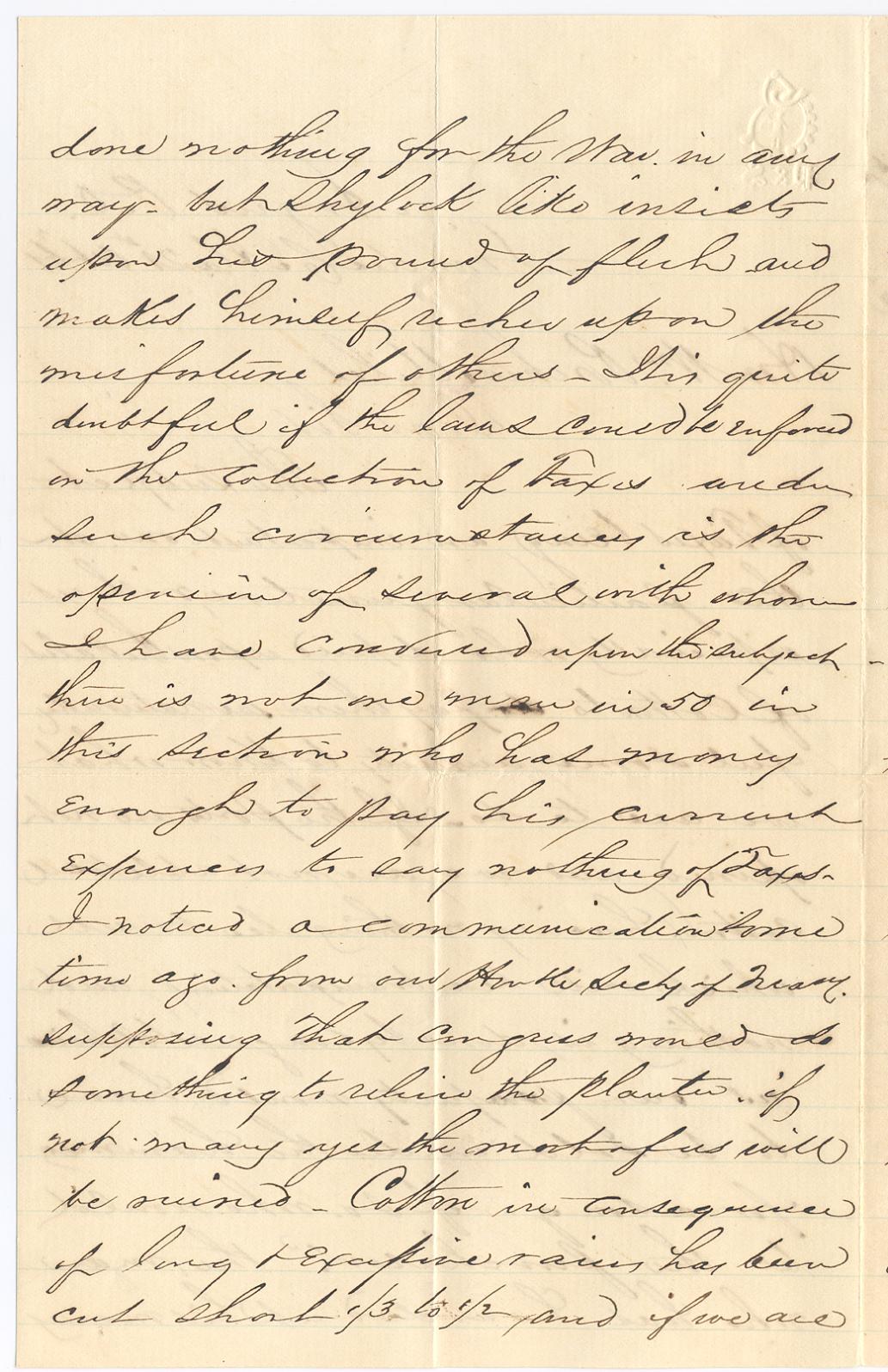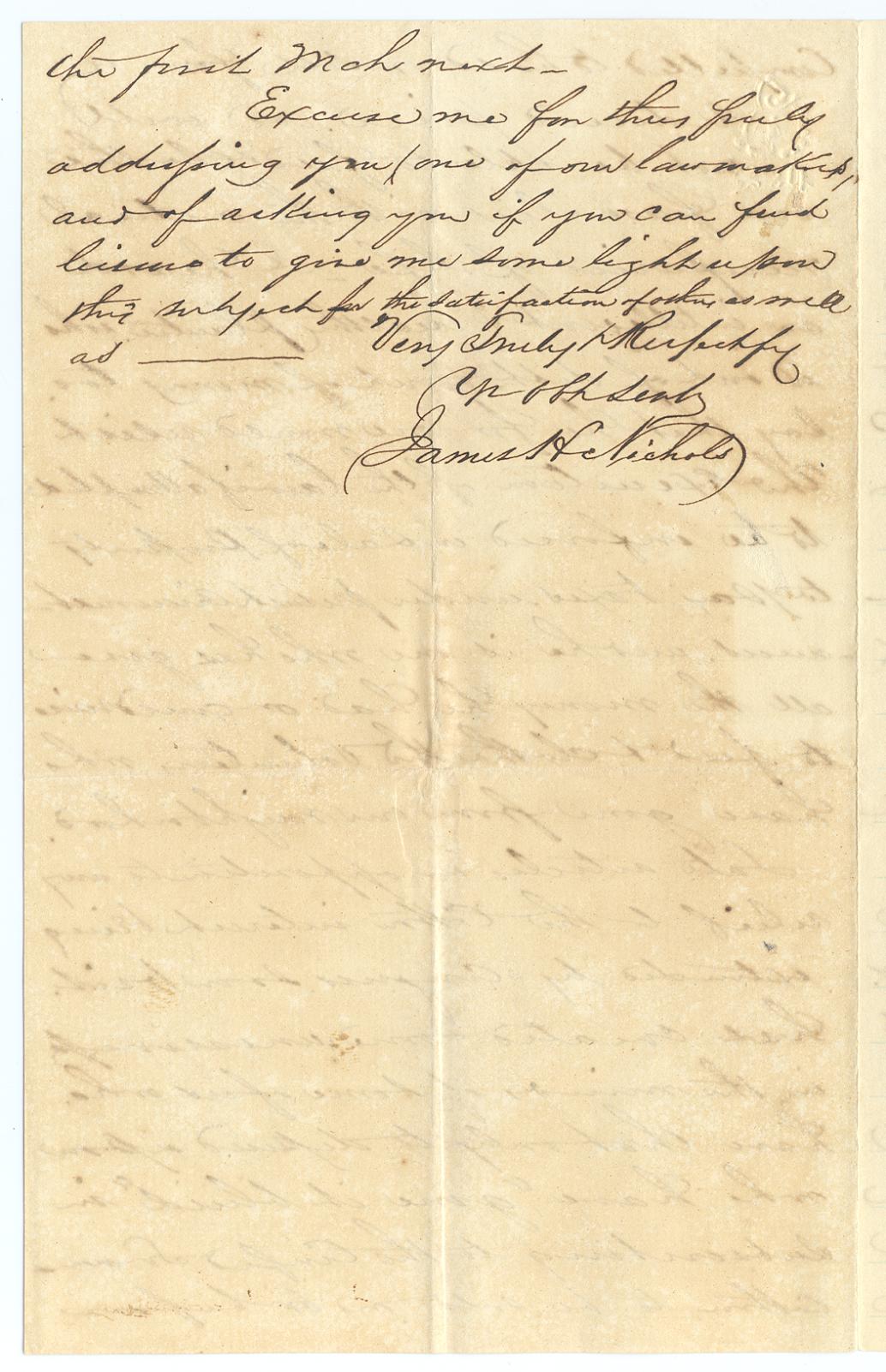Item description: Letter, 21 October 1861, from James H. Nichols, Lowndes County, Alabama, to William Porcher Miles, Representative for the Charleston, S.C., district in the Confederate Congress at Montgomery, Ala. The letter details concerns among the “planter class” about the payment of taxes, given the strained economic conditions in the South.
[Transcription available below images.]
Item citation: From folder 42 of the William Porcher Miles Papers #508, Southern Historical Collection, The Wilson Library, University of North Carolina at Chapel Hill.
Item transcription:
Argus P.O.
Lowndes Co., Ala. 21st Oct ’61
Hon. Wm. Porcher Miles,
Dear Sir,
The subject of taxes being an important one at this particular juncture with us especially who depend upon the sales of cotton to pay them we naturally feel some anxiety to know what we are to do. If the ports are not opened and we are not able to sell cotton, having nothing else to sell which will bear transportation, and nothing is done by Congress to relieve us our property would have to be sold under the hammer, for a song. if so, who would be the purchaser? the man who has hoarded up his money, done nothing for the War in any way. but Shylock like insists upon his pound of flesh and makes himself richer upon the misfortune of others. It’s quite doubtful if the laws could be enforced in the collection of taxes under such circumstances is the opinion of several with whom I have conversed upon the subject. there is not one man in 50 in this section who has money enough to pay his current expenses to say nothing of taxes. I noticed a communication some time ago from our [humble Secy. of Navy?], supposing that Congress would do something to relieve the planter. if not many, yes the most of us will be ruined. Cotton in consequence of long & excessive [rains?] has been cut short 1/3 to 1/2, and if we are compelled to hold or sell for a reduced price, we will not be able to feed & clothe our families with the actual necessaries of life. I heard an intelligent & wealthy planter who is out of debt & out of money too. say that he for one would relish the execution of the law if attempted to be enforced in sale of property to pay taxes under present circumstances, and he is one who has given all the money he had or could raise to feed & clothes the volunteers who have gone from our neighborhood.
Late articles in opposition to any relief to the cotton interest being extended by Congress. soon [?] has created some uneasiness in the minds of some of us who have that only to depend upon who have “gine it bluid” in subscribing to the Confed. from cotton to be sold on or before the first [?] next.
Excuse me for thus freely addressing you (one of our lawmakers) and of asking you if you can find leisure to give me some light upon this subject, for the satisfaction of others as well as _______.
Very Truly & Respectfully
Yr Obt sevt
James H. Nichols






McNicholls, by his name, was a Scot. “Bluid” is the Scots word for blood. “Gine” is the Scots word for given. Therefore, it would appear that the phrase that you weren’t able to interpret is “given its blood” or perhaps “given in blood”, which given the parentheses, is probaly a line taken from a then-wellknown Scottish song.
Thank you, Janet, for your comment. This is very helpful.
As I have looked at the letter a few more times today, I have gone back and forth about the spelling of the writer’s name. Originally, I was not sure whether it was “James H. Nichols” or “James McNichols”. After a little research in HeritageQuest, I see that there are no records for any McNichols of Lowndes County, Alabama. However, there is a record for one “J.H. Nichols” in the 1860 census. He is listed as being 45 years of age and was born in Vermont (hmm!). The more I look at the handwriting, I believe that is correct (Nichols). I will update the transcription.
Also I will add your suggestions for the transcription. I did read the word as “bluid” but had never heard that word before. I will revise to: “‘gine [its] bluid’.” I wonder if the middle word is actually “it”, with “it” being the Confederacy. As in, “given [the Confederacy] blood.” ?